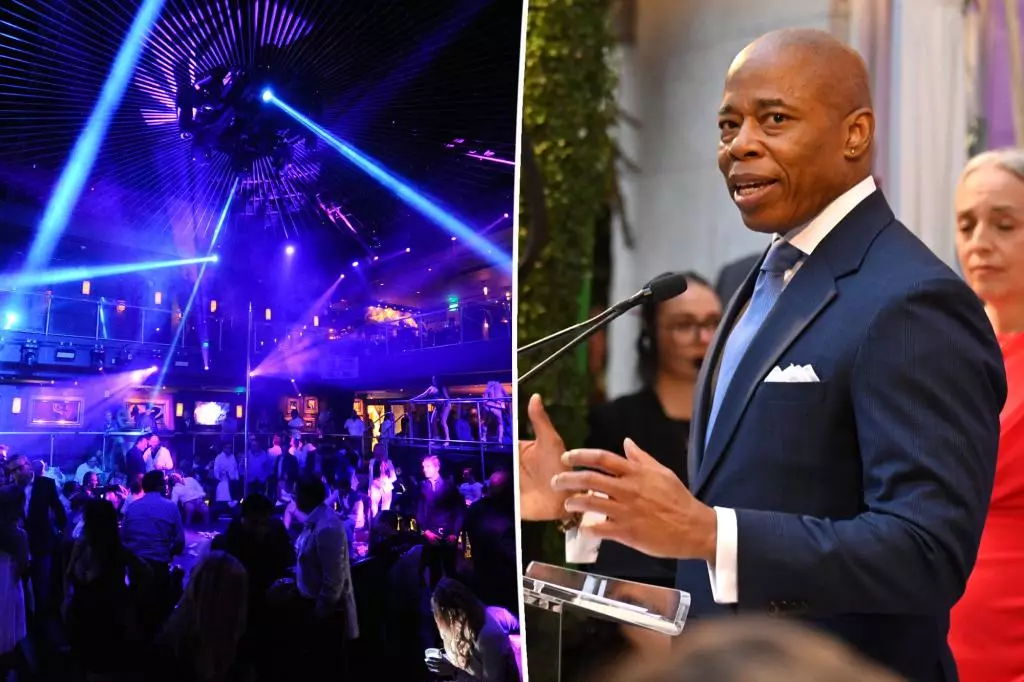New York City, a metropolis known for its bustling streets and lively atmosphere, is on the cusp of an exciting transformation in its nightlife scene. Mayor Eric Adams has boldly expressed his ambition to bring the sensational Miami nightspot, E11even, to the city that never sleeps. In a recent episode of the popular podcast “Andrew Schulz’s Flagrant,” Adams shared his discussions with the club’s management, underscoring the modern demand for 24-hour entertainment. This strategic move could be a crucial step for NYC, not just in enhancing its nightlife but in revitalizing the city’s post-pandemic economy.
E11even Miami has built a spectacular reputation not merely as a club but as a 24-hour experiential venue that attracts globe-trotting celebrities such as Leonardo DiCaprio and Kendall Jenner. The allure of non-stop entertainment has made it a favoured haunt amongst A-listers and nightlife enthusiasts alike. Adams’ push for a similar format in NYC reflects an understanding of the evolving nightlife culture and the need for cities to adapt in order to thrive.
Seizing Opportunities in a Competitive Landscape
While NYC’s current nightlife regulations dictate a closing time of 4 a.m., the allure of E11even’s round-the-clock availability presents a viable opportunity to engage both locals and tourists seeking a fantastic night out. The club’s co-founder, Dennis DeGori, echoes this sentiment, expressing his dream of making New York a sister city to Miami in terms of nightlife. This linking of two iconic locales could catalyze a new standard where cities compete not just for businesses, but for experiences.
Every city’s culture thrives on its signature nightlife – it invites unity, creativity, and economic stimulation. Moving away from conventional closing hours could invigorate the local entertainment industry, presenting chances for artists, performers, and businesses that depend on a vibrant social scene. New York’s identity has always been interwoven with the arts, and a 24-hour club could catalyze unique collaborations and artistic expressions after dark.
Inspiring a New Era of Entertainment
E11even stands out not just for its extravagant parties and celebrity guests, but for offering a multifaceted experience that goes beyond traditional clubbing. With lavish tables starting at $100,000 and performances from top-tier artists like Cardi B and G-Eazy, it elevates nightlife into an immersive show. If Adams is successful, this model could inspire a wave of similar businesses in NYC, repositioning it as an international nightlife capital.
Moreover, the potential of a 24-hour venue resonates with a broader trend: the globalization of nightlife. Cities are increasingly recognizing that nightlife isn’t just about the music or the drinks, but the entirety of the experience—a sensory journey where art and commerce intersect. As cities look to recover and grow following the challenges posed by recent global crises, investing in vibrant entertainment options like E11even can foster urban resilience and create lasting economic benefits.
The conversation about nightlife is not merely about having fun; it’s deeply linked to the economic fabric of urban areas. If NYC embraces this opportunity, it may set a precedent for other cities worldwide, proving that innovative nightlife experiences are not only viable but essential in a rapidly changing world.

